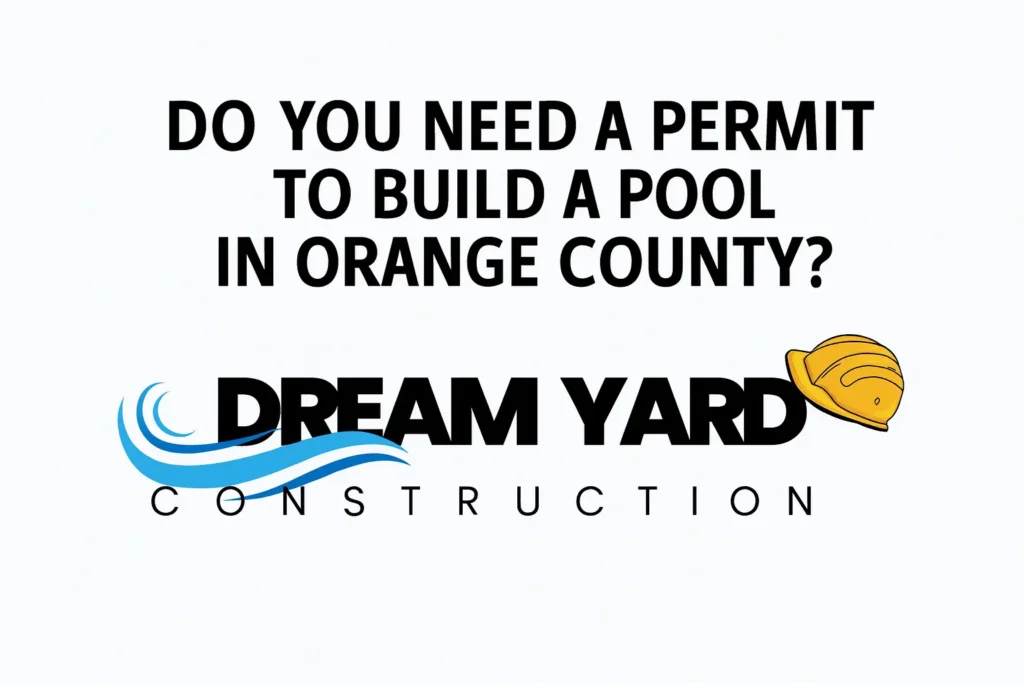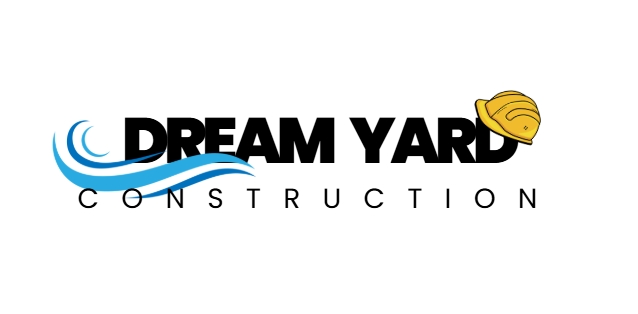Table of Contents
- Why Pool Permits Are Required in Orange County
- Which Pool Projects Require Permits?
- The Pool Permit Process in Orange County
- Common Pool Permit Requirements
- How Long Does It Take to Get a Pool Permit?
- How Much Do Pool Permits Cost in Orange County?
- City-Specific Requirements in Orange County
- Common Permit Mistakes to Avoid
- FAQs About Pool Permits in Orange County
- Licensing & Authority
Why Pool Permits Are Required in Orange County
Pool permits serve as a crucial safeguard for both homeowners and the community. Understanding why they’re required can help you appreciate their importance in your pool construction project. Pool permits aren’t just bureaucratic red tape—they serve essential purposes that protect your investment and your family’s safety.
- Ensures safety compliance with state and local building codes
- Verifies zoning and building codes for your specific property
- Protects homeowners from liability in case of accidents or injuries
- Helps with future home value and resale by documenting proper construction
Additionally, permitted pools must meet California’s strict safety standards, including the Swimming Pool Safety Act and the Virginia Graeme Baker Pool and Spa Safety Act. These regulations have significantly reduced pool-related accidents and drownings across the state. Working with a licensed contractor ensures your pool meets all current safety standards and building codes.
Which Pool Projects Require Permits?
Not all pool-related projects require the same level of permitting. Understanding which projects need permits can save you time and prevent costly mistakes. The type and scope of your project will determine the specific permits required.
Pool Project Types vs. Permit Needed
| Project Type | Permit Required? | Notes |
|---|---|---|
| New in-ground pool | ✅ Yes | Always required |
| Major remodel (depth/size) | ✅ Yes | Structural changes |
| Spa/Jacuzzi addition | ✅ Yes | Electrical & plumbing involved |
| Above-ground pool | ❌ Not always | Depends on size & location |
| Decking/fencing | ✅ Yes | Safety compliance |
| Lighting & electrical work | ✅ Yes | Electrical permits needed |
| Pool resurfacing | ❌ Usually no | Unless structural changes made |
| Equipment replacement | ✅ Sometimes | If electrical/plumbing modified |
| Solar heating installation | ✅ Yes | Building and electrical permits |
The Pool Permit Process in Orange County
Understanding the permit process helps ensure your project stays on schedule and within budget. The process may seem complex, but breaking it down into clear steps makes it manageable. Here’s what you can expect when applying for a pool permit in Orange County:
- Submit site plans & designs to your local building department
- Zoning/building review by city or county officials
- Safety features checked (fencing, alarms, barriers)
- Permit issued once approved by all departments
- Construction begins under licensed contractor supervision
- Final inspection ensures compliance before pool use
Each step in the process serves an important purpose. The initial plan review ensures your pool design meets setback requirements and doesn’t interfere with easements or utilities. The safety review confirms that your pool area will include all required barriers and safety devices. During construction, inspectors will typically visit at key milestones, such as after steel installation and before gunite or concrete application.
For detailed permit information, visit the Orange County Public Works – Building Permits website.
Common Pool Permit Requirements
Orange County enforces strict safety requirements for pool construction to protect residents, especially children. These requirements align with both state and federal safety standards. Understanding these requirements early in your planning process can help avoid delays and additional costs.
- Self-closing & self-latching gates on all pool access points
- Pool safety barriers (minimum 5 ft high)
- Alarms on home doors leading to pool area
- Anti-entrapment drain covers (Virginia Graeme Baker Act compliance)
- Electrical bonding & grounding for all equipment
- Proper setbacks from property lines (typically 5-10 feet)
- Non-climbable zone of 3 feet on exterior side of fence
- Maximum gap of 4 inches under fence
- Proper pool lighting for nighttime visibility
- Compliant pool pump and filtration systems
Beyond these basic requirements, many cities within Orange County have additional local ordinances. For instance, some areas require dual-drain systems to prevent entrapment, while others mandate specific types of pool covers. Your contractor should be familiar with both county-wide and city-specific requirements.
How Long Does It Take to Get a Pool Permit?
Timeline expectations are crucial for planning your pool project, especially if you’re hoping to have your pool ready for summer. Several factors can influence how quickly your permit is approved:
- Simple residential pools: 2–4 weeks
- Complex/custom builds: 4–8 weeks
- Factors that cause delays: HOA approvals, missing paperwork, incomplete plans
The permit timeline can vary significantly depending on your specific city within Orange County. Cities like Irvine and Newport Beach often have streamlined online permit systems that can expedite the process, while other areas may require in-person submissions and reviews. Peak construction seasons (spring and early summer) typically see longer wait times due to higher application volumes.
How Much Do Pool Permits Cost in Orange County?
Understanding permit costs helps you budget accurately for your pool project. Permit fees are just one part of your total pool investment, but they’re an important consideration in your overall budget planning.
Average Pool Permit Fees
| Permit Type | Cost Range | Notes |
|---|---|---|
| Standard in-ground pool | $500–$2,000 | Varies by city |
| Electrical permit | $150–$500 | For lighting/pumps |
| Plumbing permit | $100–$400 | For drains/pipes |
| Re-inspection fees | $100–$250 | If corrections required |
| Plan check fees | $200–$800 | Engineering review |
| Grading permit | $300–$600 | If site work needed |
Additional Costs to Consider
Beyond the basic permit fees, you should budget for:
- Engineering plans: $1,500–$3,000 for professional drawings
- Soil reports: $500–$1,500 if required by your city
- HOA approval fees: $100–$500 depending on your community
- Expedited processing: 25-50% additional fee for rush permits
City-Specific Requirements in Orange County
While Orange County provides overarching guidelines, individual cities often have their own specific requirements and processes. Here’s what you should know about some major cities:
Irvine
Irvine requires electronic submittal of all pool permits through their online portal. The city has strict aesthetic guidelines in many neighborhoods, and HOA approval is typically required before permit submission. Processing times average 3-4 weeks.
Newport Beach
Newport Beach has additional requirements for properties near the coast, including special drainage considerations and environmental impact reviews. Permits here tend to be more expensive due to the city’s coastal location and property values.
Anaheim
Anaheim offers same-day permits for simple pool projects that meet standard requirements. However, properties in historic districts may face additional review processes that can extend timelines to 6-8 weeks.
Mission Viejo
Mission Viejo requires all pools to have dual-drain systems and specific anti-entrapment devices. The city also mandates a pre-construction meeting between the contractor, homeowner, and city inspector.
Common Permit Mistakes to Avoid
Learning from others’ mistakes can save you time, money, and frustration. Here are the most common pitfalls homeowners encounter:
- Starting construction before permit approval – This can result in stop-work orders and hefty fines
- Incorrect setback measurements – Always verify property lines before planning
- Forgetting HOA approval – Get HOA approval before applying for city permits
- Incomplete documentation – Missing papers can delay approval by weeks
- Using unlicensed contractors – Only C-53 licensed contractors should build pools
- Ignoring utility easements – Check for underground utilities before breaking ground
- Skipping inspections – Missing scheduled inspections can void your permit
FAQs About Pool Permits in Orange County
Do above-ground pools require a permit?
Sometimes. Smaller temporary pools usually don’t, but large semi-permanent above-ground pools may require permits depending on city rules. Generally, pools over 18 inches deep or holding more than 5,000 gallons require permits.
What happens if I build a pool without a permit?
You may face fines, be forced to remove the pool, or fail future home inspections. Fines can range from $500 to $5,000, and you may have difficulty selling your home without proper permits.
Can homeowners apply for a pool permit themselves?
Yes, but it’s strongly recommended to use a licensed contractor (C-53) who understands local codes. Owner-builder permits require you to assume all liability and may affect your homeowner’s insurance.
Do pool permits expire?
Yes, most permits expire within 6–12 months if construction doesn’t begin. Extensions are usually available for a fee, but it’s best to start construction promptly after permit approval.
Can I modify my pool plans after permit approval?
Minor changes may be allowed, but significant modifications require a permit revision. Always consult with the building department before making changes to approved plans.
Do I need a permit to fill in or remove an existing pool?
Yes, pool removal or filling requires a demolition permit. The process must follow specific guidelines to ensure proper drainage and soil compaction.
Are permits required for pool repairs?
Simple repairs like replastering or tile replacement typically don’t require permits. However, structural repairs, equipment upgrades, or modifications to electrical/plumbing systems do require permits.
Licensing & Authority
Dream Yard Construction holds CSLB License #968962 with Classifications B & C-53 (General + Swimming Pool Contractor), ensuring proper expertise for your pool project. Our team stays current with all Orange County building codes and permit requirements, making the process seamless for homeowners.
As licensed pool contractors, we handle all aspects of the permit process, from initial design submission to final inspection sign-off. Our experience with Orange County’s permit system means fewer delays and a smoother construction process for your dream pool.
Learn more About Dream Yard Construction or verify our credentials at the CSLB License Check portal.


